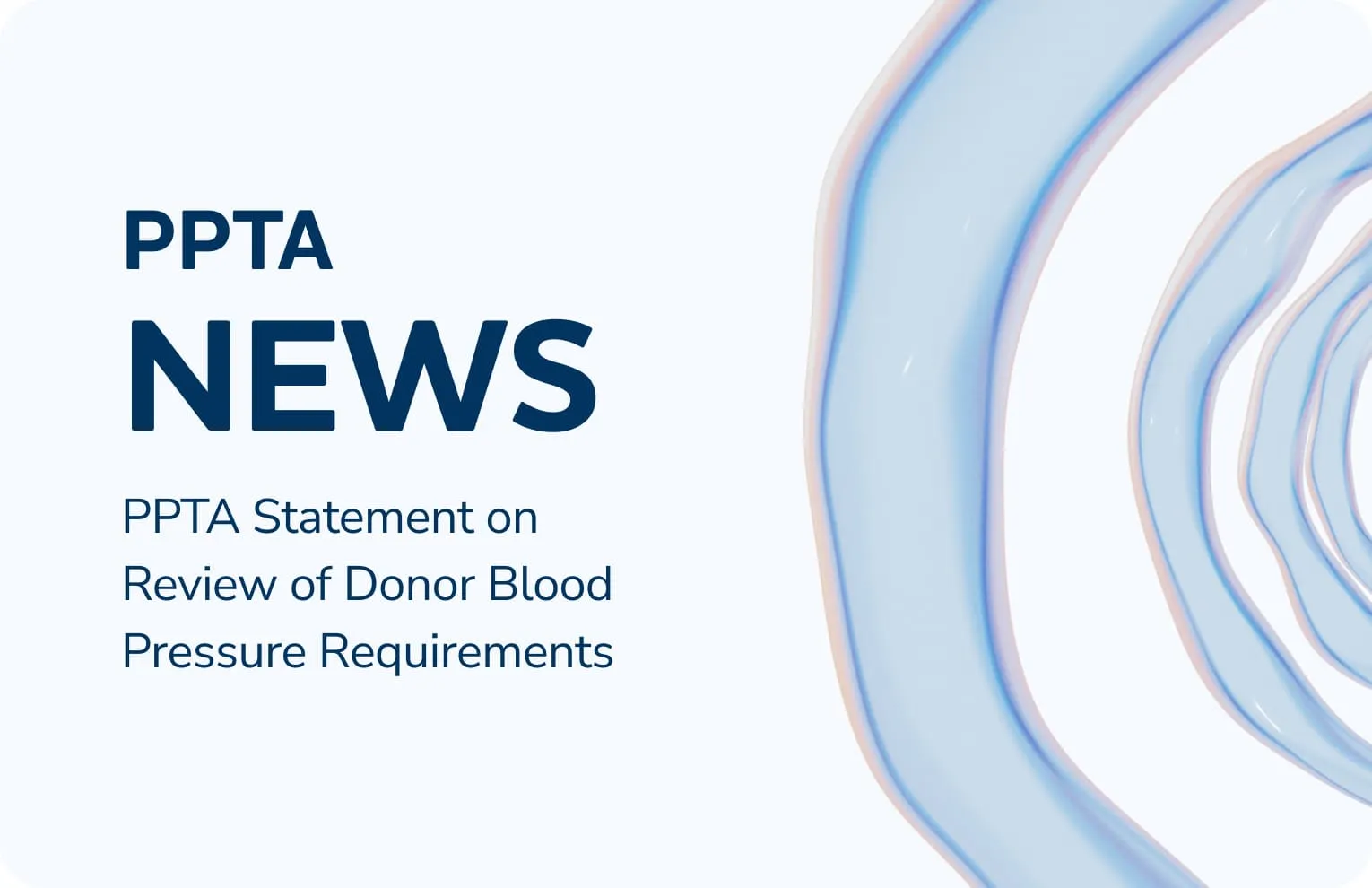PDMPs are essential medicines1, used to treat a range of rare and chronic conditions, including immune deficiencies, bleeding disorders, and neurological conditions. The EU is a major global producer of PDMPs and, therefore, it is essential that the legislation ensures the EU remains at the forefront of PDMP manufacturing in the coming decades and maintains a competitive and sustainable industry environment for plasma-derived products in Europe.
PPTA supports the proposed introduction of a risk-based approach (RBA) to good manufacturing practice (GMP) inspections of manufacturing sites, as well as those producing starting ingredients for the production of human medicines. This approach will allow for a more efficient allocation of inspection and operational resources by both regulators and industry, facilitating the availability of plasma for manufacturing and enabling timely patient access to lifesaving PDMPs. PPTA welcomes the proposed improvements to the conduct of supervisory measures, in particular an increased inspection capacity for GMP inspections in third countries, support for inspections in EU Member states and harmonisation of inspection conduct amongst EU Member States. PPTA further encourages EU policy makers to work towards an EU-wide implementation of flexibility measures granted to manufacturers during the COVID-19 pandemic. These included, for example, remote and hybrid GMP inspections for manufacturing facilities and for plasma used exclusively for manufacturing, and which have proved effective.
PPTA remains concerned about the potential for duplicative reporting requirements in the proposed provisions on the monitoring of medicines shortages. While monitoring and reporting can be a useful tool in highlighting patient access issues, only a coordinated and streamlined approach will be effective in helping to ensure that accurate and timely information is provided to patients and healthcare professionals. We therefore call on the European Commission to work closely with all stakeholders, including industry, to identify the root causes of shortages and develop a monitoring system that is both fit for purpose and provides meaningful data.
Plasma for fractionation, the essential starting material for the manufacture of PDMPs, follows regulatory requirements that are currently distributed across multiple pieces of legislation, creating unnecessary complexity and inefficiencies. This adds avoidable cost and time to the manufacture of safe and efficacious PDMPs, delaying efforts to make more PDMPs available to more patients.
PPTA and its members reaffirm our commitment to industry being held to rigorous safety and quality requirements, but recognize an opportunity for more streamlined and efficient regulation and governance. We stand ready to engage constructively with the European Commission and other stakeholders to ensure that the upcoming revision of the EU pharmaceutical legislation delivers optimal outcomes for patients, healthcare professionals, and the wider healthcare system. Moreover, aligned provisions between the EU Pharmaceutical legislation and the proposed Regulation on substances of human origin (SoHO) are key to increasing the availability of human plasma for fractionation and patient access to PDMPs.
PPTA looks forward to working with the European Commission, European Parliament, and the Council of the EU to ensure that the revised EU general pharmaceutical legislation supports the needs of patients for safe and efficacious PDMPs, while maintaining a competitive and innovative pharmaceutical industry.
About PPTA
The Plasma Protein Therapeutics Association (PPTA) is a dynamic trade association that represents a unique sector of the biologics and biotechnology industry. PPTA represents more than 1,000 human plasma collection centers in North America and Europe, as well as the manufacturers of lifesaving plasma protein therapies. Our members produce approximately 80% of the plasma protein therapies in the U.S. and 60% of those manufactured in Europe. PPTA works globally to: advocate for access to and affordability of therapies for patients; engage in constructive dialogue with regulatory agencies; and collaborate with more than 20 patient advocacy organizations.
[1] PDMPs are classified by the WHO as ‘essential medicines’





